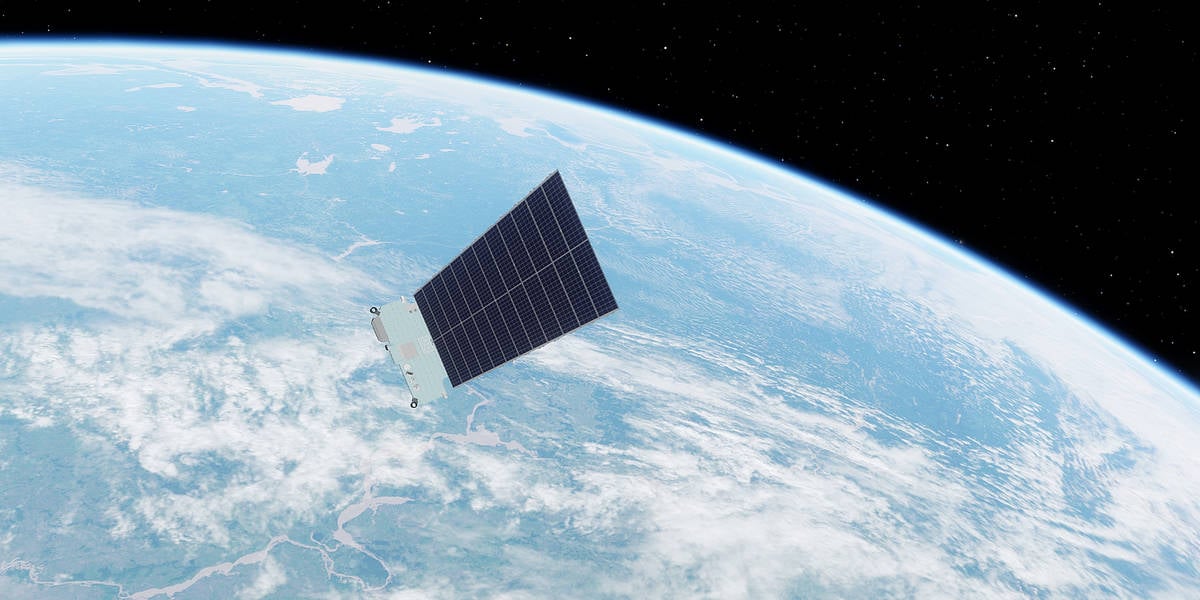UK Regulator Ofcom Seeks More Powers To Deal With Mega Constellations

UK telecommunications regulator Ofcom has kicked off a consultation process regarding licence applications for non-geostationary satellite orbit (NGSO) systems such as Starlink and OneWeb.
The consultation period lasts until 20 September, and the agency has said it will not be processing any applications for NGSO licences until the deadline passes.
The changes hint at the Wild West of NGSO. Ofcom wants to include a check that systems can coexist "without degrading consumer services." A check that granting a licence won't restrict competition is also on the wish list as well as publishing applications and giving a period for comment from stakeholders.
The new licence conditions will allow Ofcom to deal with local cases of interference and, perhaps most ambitiously of all, "require technical cooperation between operators."
There are set to be plenty of NGSO systems in orbit over the coming years. SpaceX's Starlink is not a million miles away from hitting the 2,000 mark by itself already and, according to Ofcom's figures, its initial constellation will number 4,408. Amazon's fleet will consist of 3,236 satellites, and OneWeb will eventually hit 648.
"The more dynamic nature of NGSO satellite systems introduces new challenges for managing spectrum," said Ofcom.
- In the '80s, satellite comms showed promise – soon it'll be a viable means to punt internet services at anyone anywhere
- Annoyed US regulator warns it might knock SpaceX's shiny new Texas tower down
- Belgian boffins dump Starlink dish terminal's firmware, gain root access and a few ideas
- Things that needn't be said: Don't plonk a massive Starlink dish on the hood of your car
OneWeb, Kepler (an IoT service with an initial constellation of 140 satellites), and Starlink are already NGSO licensees.
The problem that Ofcom is trying to deal with is well known. While a Geostationary satellite sits in the same part of the sky, a NGSO satellite moves across the sky and must be tracked by either the gateway station or user terminal. There is a risk that satellites from multiple operators might pass through the same bit of a sky at the same time, resulting in an "in-line event" as the spacecraft line up. The consequence is interference and iffy connectivity.
While irritating for individual customers, gateways can serve many users, all of which could suffer problems in uplink, downlink, or both.
The International Telecommunication Union (ITU) usually deals with satellite operators but Ofcom described coordination between NGSO systems as "challenging." Some companies are firehosing satellites into orbit while others might take a few more years.
"We are therefore concerned that NGSO satellite services could be deployed before an appropriate level of coordination has been possible with other operators," said Ofcom, which stands to gain a bigger stick with which to beat operators should issues arise in the UK.
The Register contacted OneWeb and SpaceX for comment on the proposed changes, but have yet to receive a reply. ®
From Chip War To Cloud War: The Next Frontier In Global Tech Competition
The global chip war, characterized by intense competition among nations and corporations for supremacy in semiconductor ... Read more
The High Stakes Of Tech Regulation: Security Risks And Market Dynamics
The influence of tech giants in the global economy continues to grow, raising crucial questions about how to balance sec... Read more
The Tyranny Of Instagram Interiors: Why It's Time To Break Free From Algorithm-Driven Aesthetics
Instagram has become a dominant force in shaping interior design trends, offering a seemingly endless stream of inspirat... Read more
The Data Crunch In AI: Strategies For Sustainability
Exploring solutions to the imminent exhaustion of internet data for AI training.As the artificial intelligence (AI) indu... Read more
Google Abandons Four-Year Effort To Remove Cookies From Chrome Browser
After four years of dedicated effort, Google has decided to abandon its plan to remove third-party cookies from its Chro... Read more
LinkedIn Embraces AI And Gamification To Drive User Engagement And Revenue
In an effort to tackle slowing revenue growth and enhance user engagement, LinkedIn is turning to artificial intelligenc... Read more

